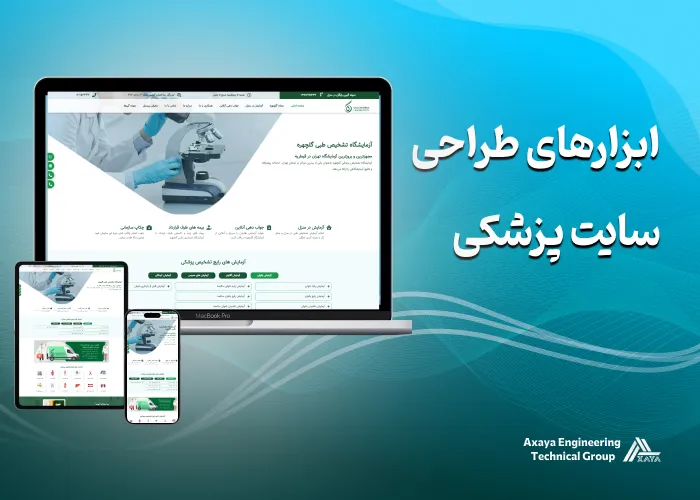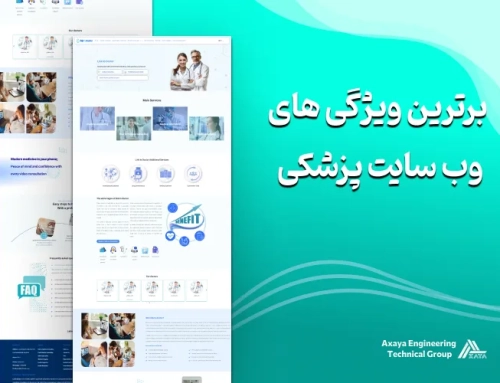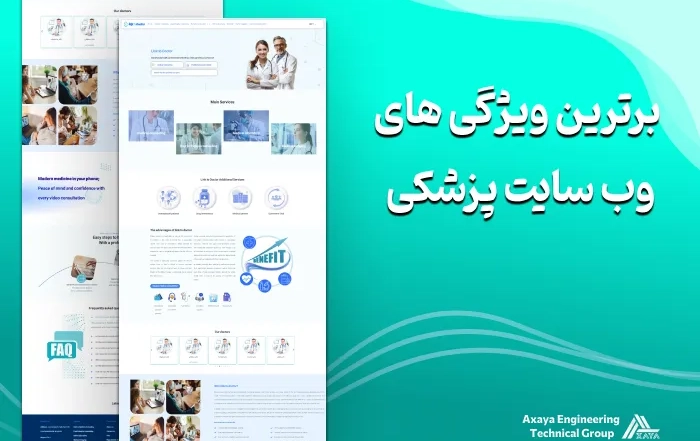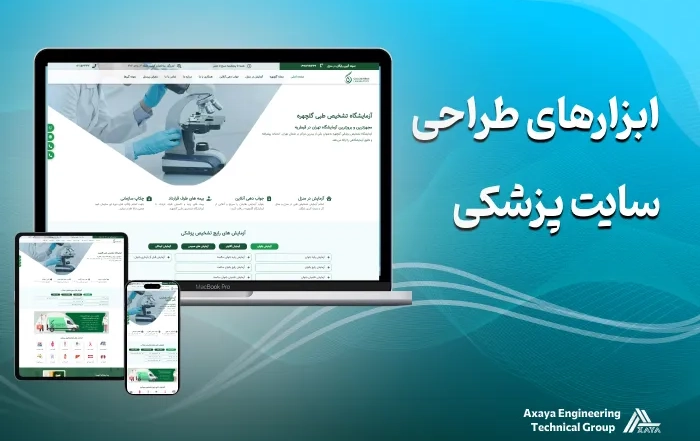Essential tools for medical website design

Essential Tools for Professional Medical Website Design
Introduction: The Foundation of Your Digital Practice
In today’s digital landscape, a professional website is a fundamental asset for any medical clinic or physician. It serves as the central hub for your online presence, and its effectiveness hinges on the tools used to build and maintain it. Key design tools—including professional templates, content management systems (CMS), online booking plugins, and Search Engine Optimization (SEO) utilities—are instrumental in creating a website that is both sophisticated and user-friendly.
By leveraging these tools, healthcare providers can accelerate the design process and more effectively showcase their services to current and prospective patients. Features such as integrated online scheduling, detailed physician profiles, and a library of health articles not only enhance user satisfaction but also play a crucial role in attracting new patients and building a trusted brand.
The Strategic Importance of a Well-Designed Medical Website
In an increasingly competitive healthcare market, a modern and professional website is indispensable. A thoughtful design ensures that patients can easily find the information they need and take advantage of online services, from booking appointments to accessing their records. Modern website design tools offer extensive customization options, empowering medical professionals to create engaging and functional sites without requiring advanced programming skills. Ultimately, a well-executed website builds a stronger brand identity and cultivates the patient trust that is essential for long-term success.
A well-designed medical website is more than just an online placeholder; it is a vital instrument for patient engagement, appointment scheduling, and efficient practice management. To ensure your website remains a valuable asset, it must be equipped with the right tools. This guide explores the essential design and functionality tools that will enhance your website’s performance and help you deliver superior service to your patients.
Core Tools Every Medical Website Needs
Medical website design tools empower physicians and clinics to build professional, user-centric platforms that provide patients with easy access to critical information, such as services offered, areas of specialization, business hours, and contact details. These toolkits typically include pre-designed templates, online booking capabilities, a robust content management system, and SEO features to improve visibility in search engine results. Employing these tools saves significant time and resources, allowing medical professionals to focus on what matters most: delivering high-quality patient care.
-
Effective Communication Tools
Clear and accessible communication is the cornerstone of any successful medical practice. Your website must offer multiple, straightforward channels for patients to connect with you. Below are several indispensable tools to improve patient communication:
- Contact Forms: A simple and prominently placed “Contact Us” form allows patients to send questions or requests directly through the website, ensuring inquiries are captured efficiently.
- Social Media Integration: To broaden your reach and foster community engagement, integrate links to your social media profiles, such as Facebook, LinkedIn, or Instagram, directly into your website.
- Email Marketing: Leverage email marketing platforms to distribute newsletters, appointment reminders, and valuable health tips. This helps maintain a consistent and meaningful connection with your patient base.
These tools make it easier for patients to engage with your practice and help you reach a wider audience.
-
Online Booking Systems vs. Appointment Request Forms
When it comes to managing appointments, selecting the right tool depends entirely on your practice’s specific workflow. Some providers, like general practitioners and physiotherapists, benefit greatly from a fully automated, comprehensive booking system. In contrast, specialists may prefer an appointment request form, which allows administrative staff to review patient information before scheduling, ensuring proper triage and efficient use of the specialist’s time.
- Online Booking Systems: Platforms like Nookal, Gensolve, and HotDoc are ideal for high-volume practices that require an automated scheduling solution. These tools allow patients to select their preferred time slots, send automated reminders, and integrate seamlessly with practice management software. They are perfectly suited for general practitioners, physical therapy clinics, and other high-traffic medical centers.
- Appointment Request Forms: Medical specialists often require greater control over their scheduling. A “Request an Appointment” form allows patients to submit their details, but the appointment is confirmed only after a review by reception or an office manager. This method is highly effective for pre-screening patients and is the ideal choice for specialists who require detailed information or a referral before consultation.
-
Dedicated Referral Forms
For specialists who depend on referrals from general practitioners or other healthcare providers, a dedicated referral form on the website is essential. This tool streamlines the process for referring doctors to submit patient information securely, ensuring all necessary details are available before a consultation is scheduled.
- Downloadable Referral Forms: Offer downloadable PDF forms that referring physicians can easily access, complete, and submit via fax or a secure email portal.
- Online Referral Forms: As a more efficient alternative, an online referral form can digitize the entire process. This allows referring physicians to submit patient information directly through the website, reducing paperwork and administrative burden for both your team and theirs.
Referral forms are particularly valuable for specialists such as surgeons, radiologists, and other experts, as they facilitate a smooth, accurate, and organized transfer of patient information between providers.
-
New Patient Forms & Resources
Instead of relying on generic intake forms, medical websites can offer more practical resources, such as online new patient registration and pre- or post-procedure guides.
- Online New Patient Forms: Enable patients to complete necessary paperwork online before their first visit. This saves time during check-in and ensures that patient information is accurate and available to your team in advance.
- Pre- and Post-Treatment Resources: Provide downloadable guides or dedicated FAQ sections that explain what patients should expect before and after a procedure. These resources not only improve the patient experience but also help reduce routine inquiries.
Offering these resources online streamlines processes for both your staff and your patients, creating a more efficient and positive experience for everyone.
-
Multimedia and Educational Content
Differentiating your practice by providing useful and engaging educational content can set your website apart. Using multimedia like videos, blog articles, or downloadable guides enhances the user experience and solidifies your practice’s reputation as a trustworthy authority in your field.
- Educational Videos: Produce videos that explain procedures, introduce your services, or share important health tips with patients.
- Downloadable Guides: Offer resources like in-depth guides or frequently asked questions (FAQs) to help patients learn more about their conditions or treatments.
- Image Galleries: Use high-quality photos of your clinic, medical team, and facilities to build trust and familiarity with potential patients.
In addition to improving user satisfaction, high-quality content significantly boosts your website’s Search Engine Optimization (SEO), helping you achieve a higher ranking in search results.
-
Intuitive Content Management System (CMS)
The backbone of any easily maintainable website is a user-friendly Content Management System (CMS). A good CMS allows you or your staff to update and manage website content without needing complex technical skills.
- User-Friendly CMS: Choose a CMS that simplifies content editing, adding blog posts, or modifying page layouts.
- Administrative Control: Ensure you and your team can easily perform essential administrative tasks, such as updating service information, responding to inquiries, and managing appointments.
An intuitive CMS saves valuable time and reduces reliance on web developers for routine updates, giving you direct control over your digital presence.
Frequently Asked Questions (FAQ) about Medical Website Tools
What are the most essential communication tools for a medical website?
Core communication tools include contact forms for direct inquiries, social media integration to broaden reach, and email marketing platforms to maintain ongoing engagement with patients.
Why is an “Appointment Request Form” often better for specialists?
This type of form enables a crucial vetting process. It allows office staff to review patient requests and medical information before confirming an appointment, ensuring the patient’s needs align with the doctor’s specialty.
How do online forms for new patients improve practice efficiency?
They allow patients to submit their information before their first visit, which streamlines the check-in process, reduces waiting room time, and ensures that patient data is accurate from the start.
What is the importance of referral forms on a medical website?
Referral forms simplify the process for general practitioners and other specialists to refer patients. They ensure that all necessary patient information is transmitted securely and efficiently, improving continuity of care.
How does a user-friendly CMS benefit a medical website?
A simple CMS empowers you and your staff to make updates, publish new content, and manage your site without needing to hire a web developer for every minor change, saving both time and money.
Conclusion
By equipping your medical website with these essential tools—including robust booking systems, streamlined referral and patient forms, and engaging educational resources—you can significantly enhance patient communication, streamline your operational workflow, and elevate the overall user experience. In today’s healthcare landscape, an effective online presence is non-negotiable. These tools will ensure your website remains a valuable and indispensable resource for both your practice and your patients for years to come.
rostami2025-09-22T16:47:38+03:3008/08/2025|0 Comments
Artificial intelligence is often associated with chatbots like ChatGPT, but in reality, this technology has been shaping the medical field for quite some time. In this article, we will explore artificial intelligence (AI), machine [...]
rostami2025-09-23T13:57:58+03:3011/07/2025|0 Comments
This article explores how healthcare systems are being integrated with AI-powered solutions—an evolution driven by the convergence of medicine and technology that is reshaping models of care delivery. Cloud computing plays a crucial role [...]
rostami2025-06-17T20:53:48+03:3010/05/2025|0 Comments
Top features of a medical website In today's digital-first world, the patient journey no longer begins by walking into a clinic; it starts with a search query. A medical website has evolved from a [...]
rostami2025-06-17T21:38:09+03:3010/05/2025|0 Comments
Essential Tools for Professional Medical Website Design Introduction: The Foundation of Your Digital Practice In today's digital landscape, a professional website is a fundamental asset for any medical clinic or physician. It serves as [...]





